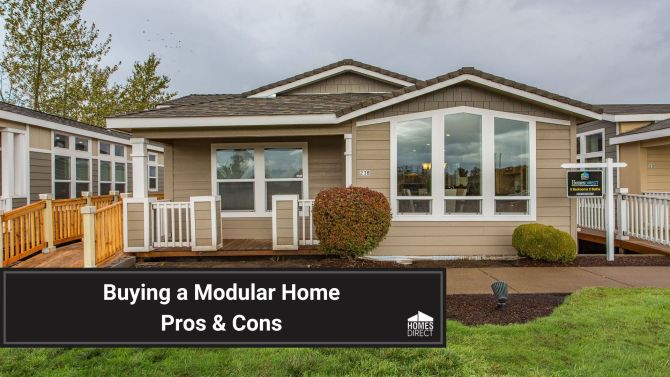
What is a modular home?
A modular home is a type of home built in factories. It is also called a prefab home, factory-built or system-built. The finished products are transported to the location where they need to be assembled.
You can have a modular home according to your style and imagination as most factories offer not only standard plans but also custom-made homes
What a modular home looks like?
If you don’t know what modular homes look like, here are a few examples for your to consider:
Champion California
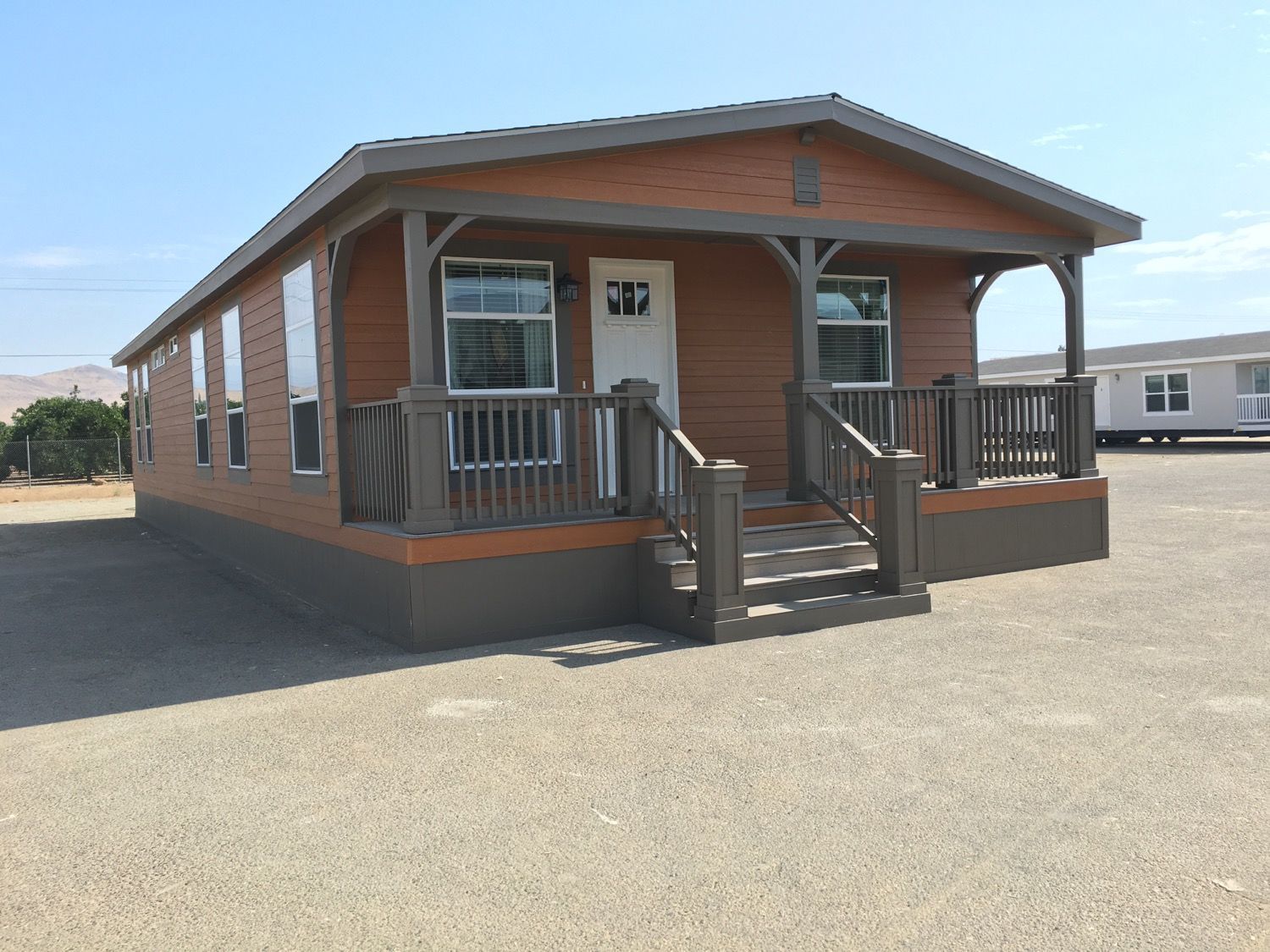
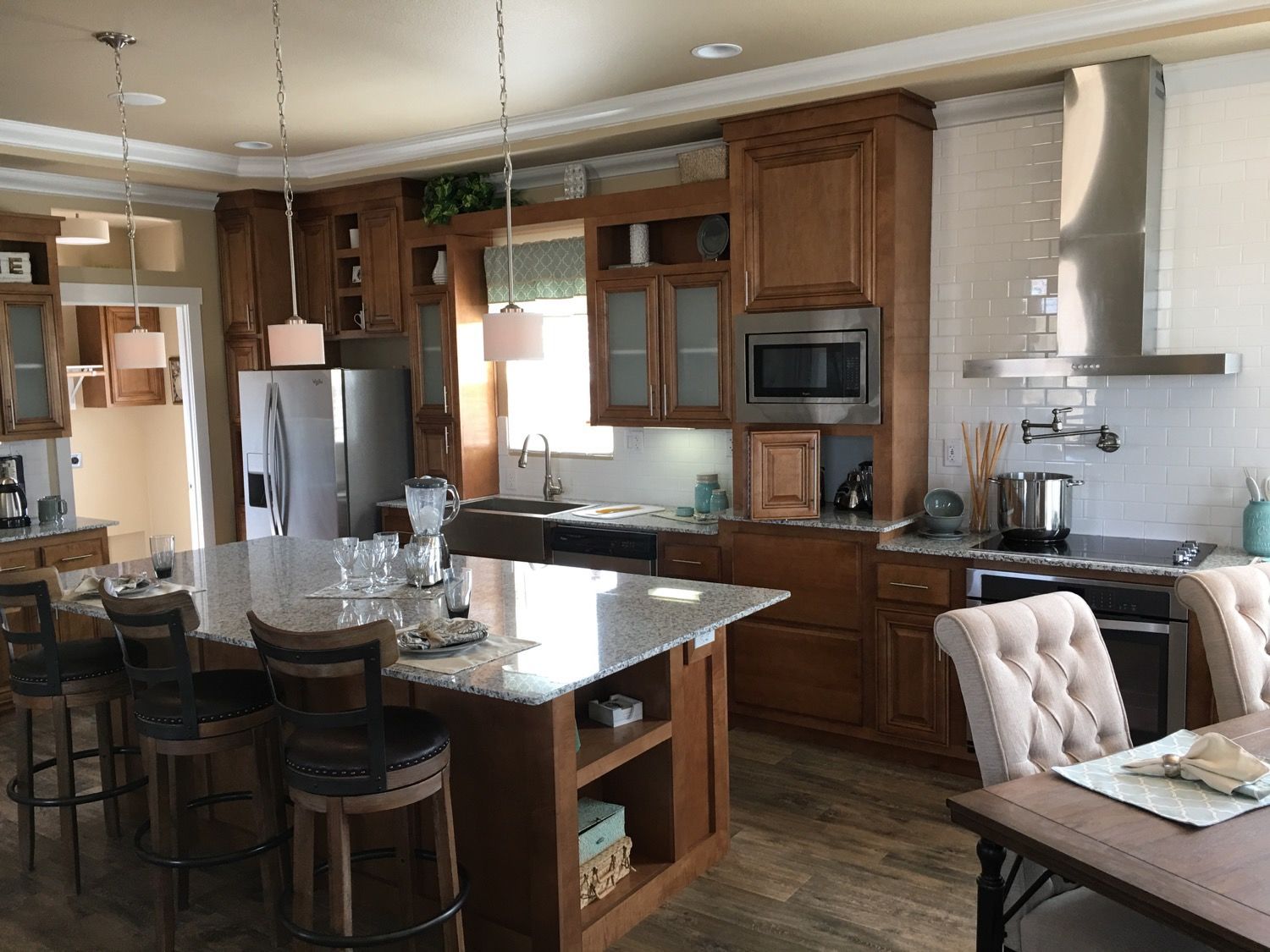
Clayton West
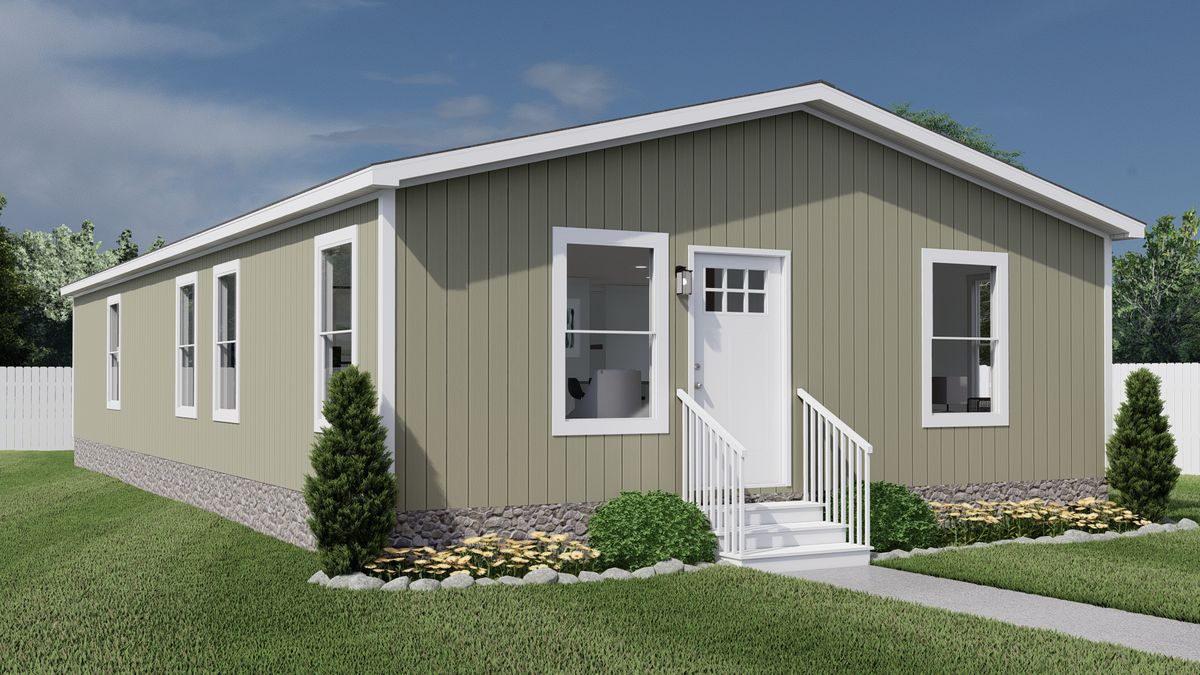
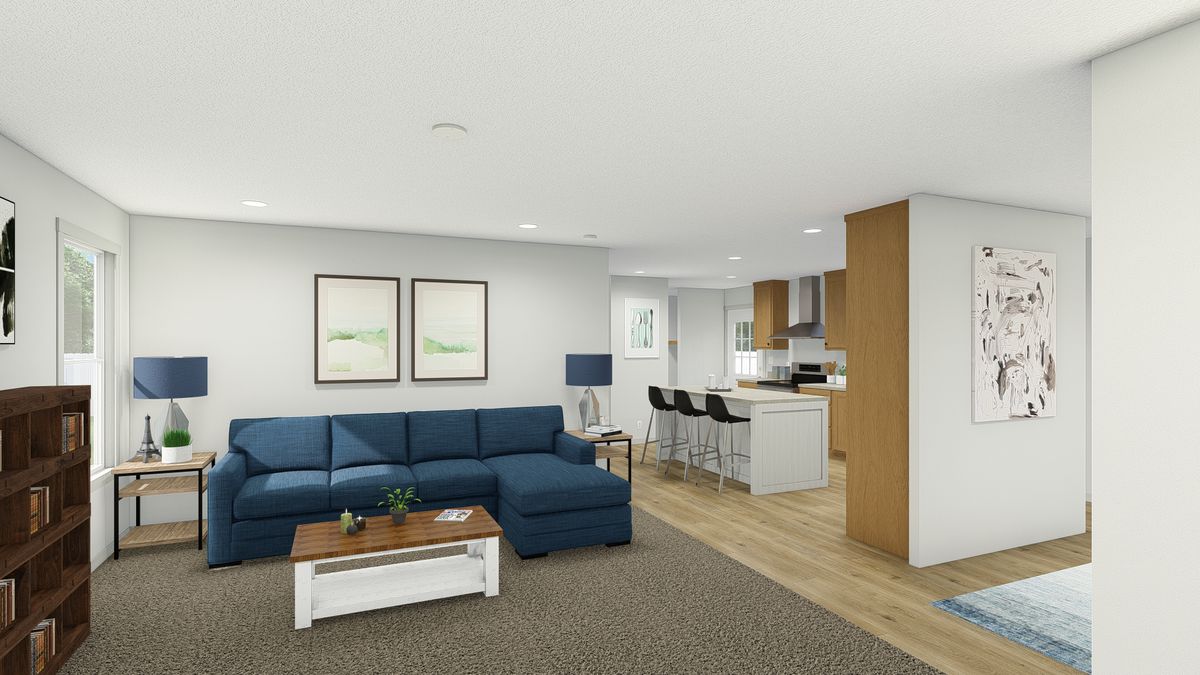
Palm Harbor
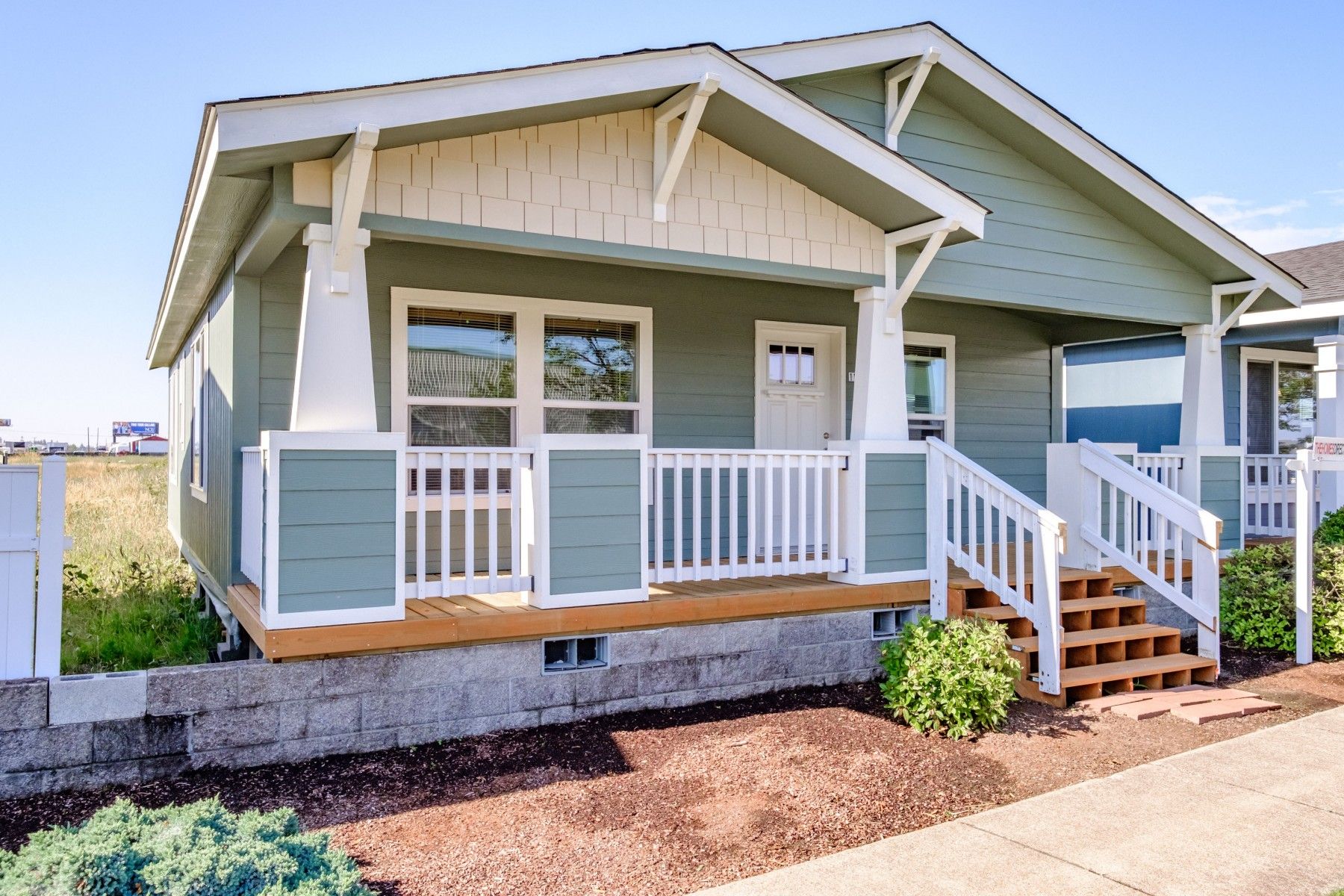
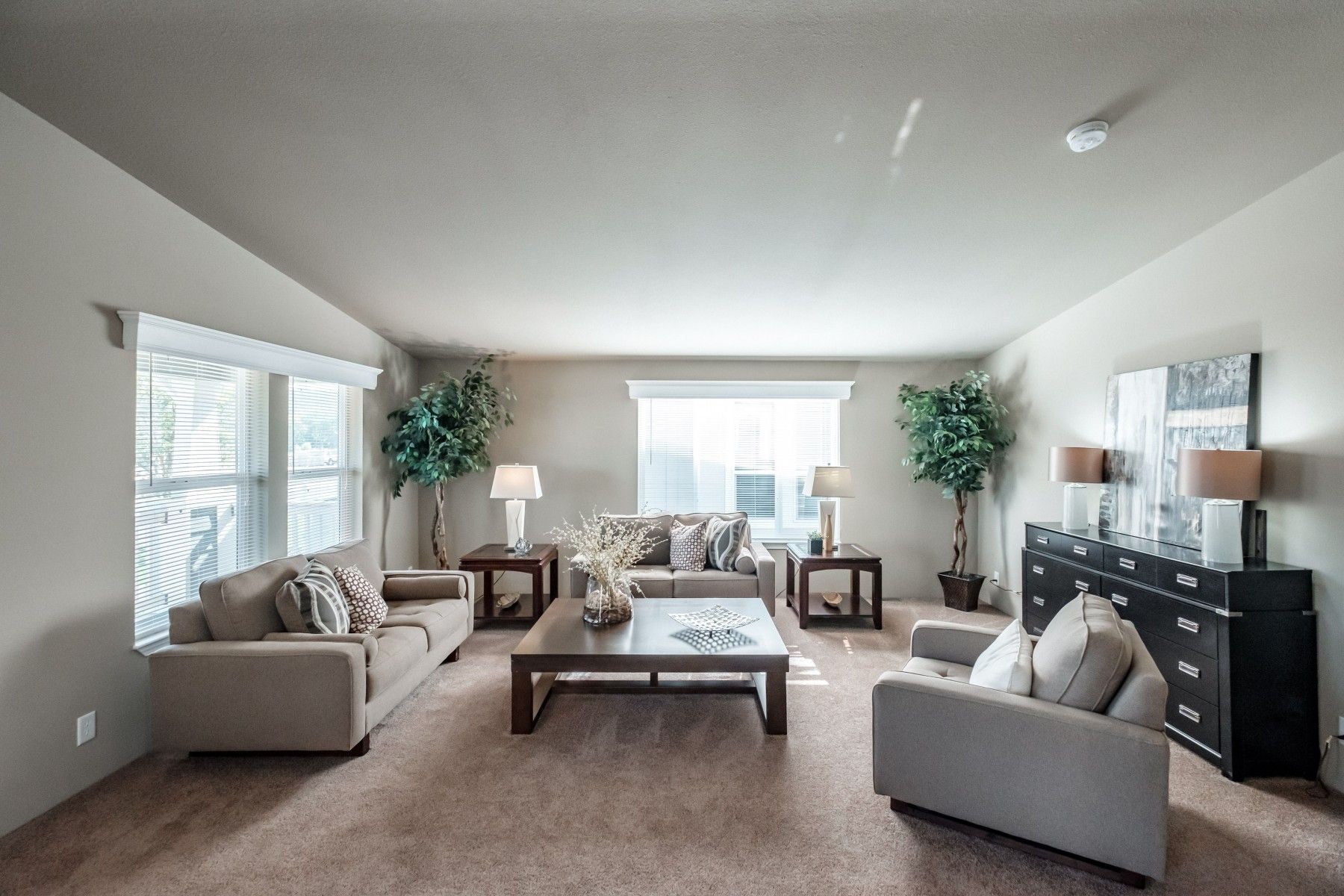
Golden West (California)
_1.jpeg)
_2.jpeg)
Why modular homes differ:
Modular homes vs. prefab homes
Modular homes are also called prefab homes. The latter is a catch-all term for all types of homes that are made with sections and later put together off-site. As the modular home is also built in sections and then assembled somewhere else, these two terms are usually used to mean the same kind of construction.
Modular homes vs. manufactured homes:
The main difference between a modular and manufactured home is that the first one is permanently attached to the foundation. Once they are installed, they aren't any different from site-built homes.
Manufactured homes (also called mobile homes) can be transported from one location to another. They are not permanently attached to their foundations like modular homes. Besides that, they do have separate laws and regulations regarding relocations.
The other difference between these constructions is that modular homes are classified as real property, while manufactured or mobile homes are considered personal property. When the modular home is attached to the ground permanently, it becomes real property. However, the manufactured home is taxed similar to cars.
Modular homes vs. mobile homes:
Mobile homes are the same manufactured homes built before June 15, 1976. Housing and Urban Development changed the term manufactured homes to mean the same type of construction built after 1976.
Facts about modular homes
-
Modular homes are either built based on a standard style or customized to your liking.
-
Their designs vary in both style and size.
-
Modular constructions can also be used as offices.
-
Modular homes are permanent structures, considered real property.
-
They are built in the factories, then moved and attached permanently to the foundations.
-
The taxes you pay on modular homes are the same as on stick-built houses.
-
Home loans for modular homes are usually the same as site-built homes.
-
Home insurance for modular homes is also the same as for site-built homes.
-
Modular homes are considered to be green buildings.
-
A modular home can be built to withstand winds up to one hundred seventy-five miles an hour.
-
Modular homes can be built on crawl spaces and basements.
-
Modular homes are faster to build than 100% site-built homes.
How is a modular home assembled?
Here are the main steps of the assembly process of modular homes:
Step N1: Preparation and set-out
The first step of the assembly process is the preparation and set-out. What does that mean? That means you need to make sure the land is cleared and sorted out before the actual assembly of the modular home. Then the on-site installer will arrive and start the process. The latter involves digging down at least 1.5m to provide a stable base for the modular home.
Step N2: Arrival of modules
This is the most exciting step when you can already see the building. The team will proceed with the unloading of the home immediately after its arrival. The home will be attached to the base and the ridge cap will be installed on the roof to make sure your home is weatherproof on the first day.
Step N3: Stairs and verandas
The next stage is the assembly of stairs, verandas, and subfloor skirting. Based on the size of your home, this step may take one or two weeks to complete. At this stage, all the outside work is completed.
Step N4: Internal preparation
During this stage, the installer completes the join inside your modular home. This usually includes installing a joiner strip and repairing any cracks or damage that occurred when transporting the home. At this stage, it is also recommended to start the work with an onsite plumber and electrician and connect the home with power, water, and sewerage.
Step N5: Final QA process
During the last stage, your home will be inspected to ensure that all works have been completed correctly and any minor issues have been solved. After the final inspection, you are free to take the keys and move to your new home!
Are modular homes more expensive than those built on-site?
There are several reasons that make modular homes more affordable than those built on-site.
First of all, mass-produced materials on an assembly line cut down costs because factories buy supplies in bulk. Besides that, the labor is less as you don't send plumbers and carpenters to individual construction sites.
As modular homes are built in the factories, they are not disrupted by bad weather, theft, and vandalism.
Moreover, modular homes are built faster than on-site ones. That means, faster building time saves you money, too.
In general, the average modular home could cost between $90 and $120 per square foot. However, a home built on-site starts at $150 per square foot.
Learn more - Why are Manufactured Homes Cheaper than Site-Built Homes?
Owning a modular home: Pros and Cons
Modular homes have many advantages, but there are also a few disadvantages that you should consider before buying a modular home:
|
Pros of Modular Homes |
Cons of Modular Homes |
|---|---|
|
It is more affordable to buy a modular home than a site-built one ($49 vs $107). |
You have to buy the land for it first |
|
Shorter time for construction |
It can’t be constructed in subdivisions |
|
Home inspections aren’t a must- they are done at the factory |
You need to build out a foundation |
|
It can be easily customized |
Once the home is attached to the foundation you should convert the construction loan into a long-term mortgage |
|
It is built with environmentally friendly materials |
Manufacturers have different approaches. You need to carry out research before choosing one for your modular home |
|
There can be no weather-related building delays |
|
|
Modular homes are built to be more energy-efficient |
|
|
It can withstand harsh weather conditions |
Learn more - Buying a manufactured home: pros and cons
How to buy a modular home?
You shouldn’t worry about buying a modular home once you find the builder that will help you go through all the important processes.
Before buying a modular home, you should set a budget. The budget calculations will show you what kind of modular home you can afford.
If you already have a lot, you should start with the required tests and site inspections. If you don’t have a lot, your builder will help you find suitable land for your home.
Once you get the lot, you can start designing your dream home! The builder’s engineers will collaborate with you to design the modular home within the available budget. After you review the final plans, you sign off on the design and the building process starts.
The ready-made home is then shipped to your lot. The builders lay the foundation and attach the home to it. The last step is the final inspection of the modular home.
After the inspection of the home, you can officially move in!
It’s important to mention that the whole process of building your dream home will take 16-30 weeks. A great way to buy a new home in what feels like no time.
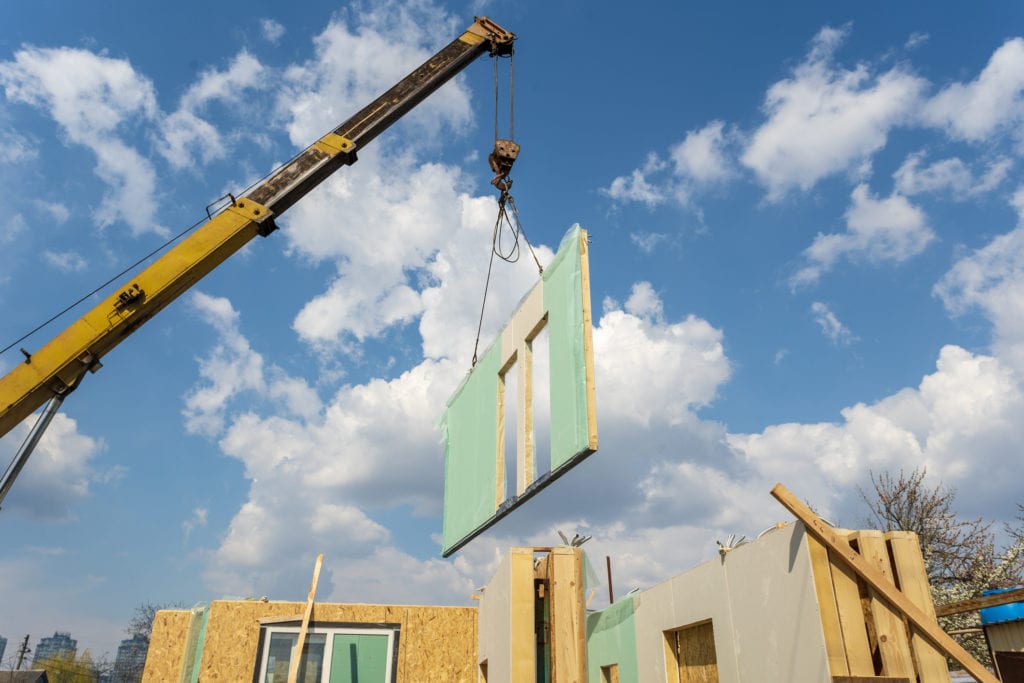
Who builds modular homes near me?
Choosing a manufacturer for your new modular home is not an easy task. If you haven’t found the manufacturer yet, here are some of the best modular home manufacturers from different regions that will help you build the home of your dreams in a short period.
Clayton West - Clayton West builds the Tempo and Harmony line of homes out of two manufacturing plants.
Champion Arizona - Champion Home Builders is the second largest manufacturer of modular homes in the country. Champion uses advanced engineering and construction methods to provide high-quality and affordable homes for its customers.
Golden West Homes - Golden West Homes is a member of the Clayton Homes family of brands and is one of the most recognized names in the manufacturing housing industry on the West Coast.
Champion California - Homes built by Champion meet all the national, state, and local building codes and undergo quality inspections at each construction phase. Champion has earned four awards at the 2018 Manufactured Housing Institute (MHI) National Industry Home Design Awards for Manufactured and Modular Housing.
Karsten New Mexico - Karsten is well-known for its contemporary designs and dedication to customers. The company is dedicated to building green and is a proud ENERGY STAR partner.
Durango Homes - Durango Homes, a division of Cavco Homes, is a leader in the manufactured housing industry in the Southwest. The company was founded and started building homes in 1965.
Golden West California - As a part of the Clayton family, Golden West houses follow the same quality standards. Clayton has multiple Manufactured Housing Institute awards in design and retail.
Palm Harbor Homes - Palm Harbor Homes is one of the leading builders of modular and manufactured homes in the US. The company was founded in 1977 after the HUD Code took effect. Palm Harbor is owned and operated by Cavco Industries.
Where to buy a modular home?
Homes Direct has 13 offices in 5 states. Find the office that’s near you and the professionals will help you buy the home of your dreams:
|
State |
City/County |
Address |
|---|---|---|
California |
2401 West Capitol Ave West Sacramento, CA 95691 United States 916-372-7220 |
|
|
3100 N. Perris Blvd Perris, CA 92571 United States 951-943-8055 |
||
|
2152 Ashby Rd Merced, CA 95348 United States 209-384-1472 |
||
|
4918 Salida Blvd. Salida, CA 95368 United States 209-545-1651 |
||
Oregon |
3838 Palm Harbor Dr NE Albany, OR 97321 United States 541-928-2083 |
|
|
1357 NW 6th St Redmond, OR 97756 United States 541- 706-9244 |
||
|
Washington |
3526 Cedardale Rd Mt. Vernon, WA 98274 United States 360-336-1010 |
|
Arizona |
6420 W Allison Road Chandler, AZ 85226 United States 480-407-4490 |
|
|
7400 N. Starcommerce Way Tucson, AZ 85743 United States 520-744-7014 |
||
|
1533 N. JackRabbit Trail Buckeye, AZ 85396 United States 623-853-9872 |
||
New Mexico |
18581 US 84\/285 Espanola, NM United States 505-753-0016 |
|
|
2190 Bloomfield Hwy Farmington, NM 87401 United States 505-325-6700 |
||
|
2710 Karsten Ct SE Albuquerque, NM 87102 United States 505-242-7555 |
FAQ:
How much does a modular home cost?
The average modular home usually costs $50 to $100 per square foot. Modular home costs depend on some factors like what floor plan you have, how many bedrooms you want, and what customizations you need. It’s always a good idea to get a quote from modular home builders near you or look at the plans they provide on their websites.
How to identify a modular home?
It wouldn’t be easy to identify a modular home as they look very similar to site-built homes. One of the most obvious ways to find out whether your home is modular is not is by looking at the UBC sticker. All the modular homes (assembled away from their foundations) are required to have that sticker to show that the homes are built to meet and exceed the standards of UBC (Universal Building Code). So if the home has a UBC sticker, it is definitely a modular home.
Do modular homes have HUD tags?
No, modular homes do not have HUD tags like manufactured or mobile homes. That’s because modular homes are not built according to HUD. They are held to local, state, or regional building codes.
How long does a modular home take to build?
It may take from 16 to 30 weeks depending on several factors like the size of the home, preparation of the building site, the time to get proper building permits, and the time to create its foundation and modules.
Can I get a mortgage for a modular home?
Yes, if you want to buy a modular home you can obtain a mortgage to pay for it. Modular homes have permanent foundations. That’s why they are treated like a site-built home once assembled.
Are modular homes safe during a tornado?
Yes, modular homes are safe during a tornado. According to recent research, they are even better prepared for tornado-related damage as they are built differently than traditional homes. You will have minimal to no damage with modular homes.
Don’t worry if you still can’t decide what type of home is the best for you! At Homes Direct, we will help you build the home of your dreams in a short period of time. Contact us, and let’s discuss the details!

